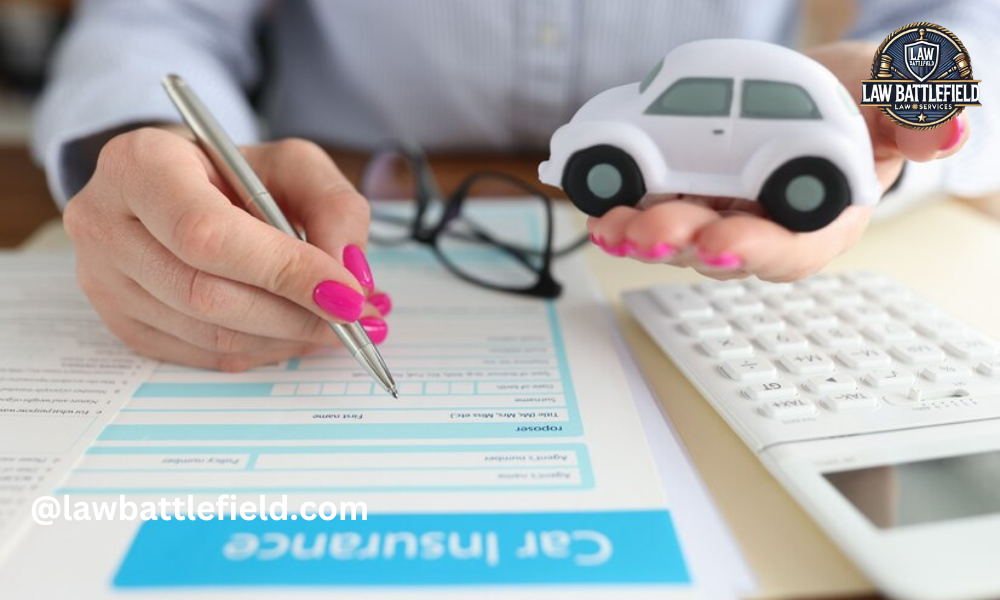Every year, 1.19 million people die in road traffic crashes. This staggering statistic underlines the significance of having comprehensive car insurance and being knowledgeable about accident claims. Having proper coverage provides essential financial protection in case of an accident, helping victims easily manage medical costs, repair bills and other expenses while holding drivers liable for damage they cause to others.
No matter if you’re new to driving or experienced, understanding car insurance and handling accident claims efficiently are of utmost importance. This guide offers essential details on securing an appropriate policy and filing claims efficiently.

Obtaining Car Insurance
The first step in securing proper car insurance is choosing the right policy. Many drivers begin by consulting with an experienced local broker and calculating potential insurance costs in their region using online tools. For example, if you’re located in Ontario, Canada, you can use a car insurance calculator in Ontario to estimate the costs of auto insurance from different providers in your area.
These calculators offer quick estimates based on key details such as driving history, vehicle make and model and level of coverage desired. By inputting these details, you can compare rates from different insurers and find which policy offers optimal protection at an affordable cost. This step is key for finding a great deal while remaining fully protected in an accident scenario.
Types Of Coverage
Auto policies offer different kinds of coverage to meet specific needs. Liability coverage, often required in many regions, provides protection should you cause damage to another driver or their property. This protects you from incurring out-of-pocket repair expenses or medical bills for accidents you were at fault in.
Accident benefits coverage is now legally mandatory in many locations and provides coverage for medical expenses, income replacement and rehabilitation costs resulting from an accident, no matter who was at fault. Drivers requiring support in times of distress will find accident benefits a valuable ally during these difficult times.
Apart from mandatory coverage, you have the option of adding collision and comprehensive insurance to your policy. Collision coverage covers damages caused by crashes regardless of who was at fault while comprehensive protection covers theft, vandalism or natural disasters; these add-ons provide peace of mind while being completely voluntary.
Understanding Deductibles
As part of purchasing car insurance policies, one of the key decisions you’ll face is selecting your deductible amount. This number shows what you agree to pay before your policy starts working; often higher deductibles mean lower premium payments, an attractive feature for anyone trying to save on monthly expenses.
At the same time, it’s crucial that your deductible is in line with your financial capability when setting it. An excessively high deductible could increase repair costs and create unexpected expenses that would be difficult for you to cover on your own.
Making An Accident Claim
After being involved in an accident, knowing how to file a claim is vital in order to limit expenses associated with any costly injuries sustained. First and foremost, ensure everyone involved is safe before calling emergency services if necessary. Afterward, collect as much evidence as possible, such as photos showing damage, and witness contact information.
As soon as an incident occurs, notify your insurer immediately. Be clear and honest in reporting all details surrounding the accident to them, such as severity and damage assessments. Depending on the severity, an adjuster may come to assess the damage; in cases involving other drivers involved in accidents, your insurer will likely handle communication with their insurance company as well.
What Happens When A Claim Is Denied?
Unfortunately, insurance companies sometimes deny claims; this can be extremely disconcerting and should always be reviewed closely in order to fully comprehend why a claim was denied. Common causes may include missing deadlines for reporting incidents or insufficient paperwork.
Appealing a decision typically involves providing additional evidence or clarification. If you believe the insurance company is acting unfairly, seeking legal advice from an experienced personal injury attorney could speed up the appeals process and protect your rights.
Impact On Insurance Premiums
Filing a claim may increase your insurance premiums; insurers use historical claims data to assess risk, so if the accident was your responsibility, they could see this as evidence against you and consider you a higher-risk driver. Keep in mind that your premiums could stay the same or even decrease depending on the circumstances or if this was your first claim.
Premium increases can be significant following an accident for drivers with multiple claims or violation histories. To keep premiums low, you may want to consider improving your driving record and maintaining a clean claims history.

Conclusion
Car insurance is not just a legal necessity; it’s also a key financial safeguard that will keep you financially secure in the event of an accident. By understanding different types of coverage, deductibles and how to handle claims, you can better manage and protect yourself from unexpected expenses. Car insurance calculators can also assist with finding policies at affordable rates for peace of mind while driving. Be sure to revisit your coverage periodically in case circumstances change over time and adjust as necessary.
Was this article helpful? Check out more on Lawbattlefield.com
How Does New York’s No-Fault Insurance System Work: A Comprehensive Guide





